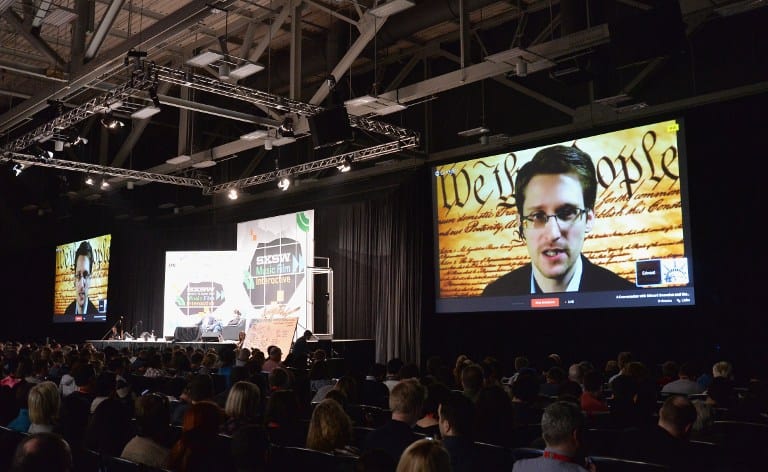The White House has proposed to halt the National Security Agency’s controversial bulk telephone data collection of U.S. citizens, a program which sparked a vast public outcry.
The plan would store the data outside of government while allowing access for national security reasons, officials said.
President Barack Obama — in The Hague for a nuclear security summit — called the plan “workable” and said it “addresses the two core concerns that people have” about the NSA’s surveillance.
The president told a press conference that the reform “ensures that the government is not in possession of that bulk data.”
Obama said there were “clear safeguards” against any abuse of the NSA’s authority but added: “I recognize that people were concerned about what might happen in the future with that bulk data.”
“So, overall, I am confident that it allows us to do what is necessary in order to deal with the dangers from a terrorist attack, but does so in a way that addresses some of the concerns that people had raised,” he said.
A senior administration official said earlier that Obama had considered the results of a study he ordered in January into how the NSA could protect national interests without storing citizens’ private data.
The comments came after reports in the New York Times and The Washington Post that a major reform of data collection by U.S. intelligence agencies was imminent.
The Times reported that the records would stay in the hands of phone companies, which would not be required to retain the data for any longer than they normally would, and that the NSA would obtain specific records with permission from a judge, using a new kind of court order.
A trove of documents leaked by fugitive former NSA contractor Edward Snowden sparked outrage in the United States and abroad about the vast capabilities of the U.S.’ intelligence programs.
Officials have defended the methods as necessary to thwart terror attacks, but U.S. public opinion was shocked by the extent of the NSA’s activities on home soil.
‘Cosmetic change’
James Lewis, a senior fellow who follows national security at the Center for Strategic and International Studies, said the Obama proposal appeared to be “a cosmetic change” to NSA authority.
“This will pacify domestic critics, but we don’t know how it will play overseas,” Lewis told AFP. “If it’s done right, there will be no impact on national security.”
Elizabeth Goitein, co-director of the Brennan Center for Justice at New York University, welcomed the news.
“The president faced tremendous pressures from his own intelligence agencies to simply tinker around the edges,” said Goitein. “If he has indeed chosen to stand up for the privacy rights of Americans by ending the bulk collection program, he deserves great credit.”
Zeke Johnson at Amnesty International USA meanwhile warned that “the devil is in the details.”
“The key questions are whether dragnet collection ends altogether and whether judicial review is sufficient,” Johnson said in a statement while adding that “far more must be done to uphold the privacy rights of non-Americans — the vast majority of the world.”
Joseph Wippl, director of graduate studies at Boston University’s Department of International Relations and a 30-year CIA operations officer, said the measure could allay public fears about NSA surveillance, but added: “There is nothing here which protects foreign nationals, which is the way it has always been.”
Some said the proposals unveiled so far did not go far enough
“If the president’s proposal only addresses the phone collection program, it would continue to allow bulk collection of other information, like Internet metadata, location information, and financial records,” said Harley Geiger at the Center for Democracy & Technology, a digital rights group.
“The president and Congress must end bulk collection authority entirely, for all types of records, and replace it with surveillance directed at specific targets.”






